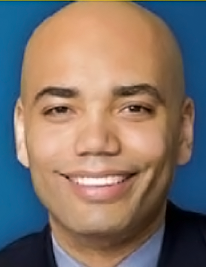 Becoming a father for the first time can be difficult for anyone, but when you do so in your teens or early 20s and have been incarcerated, it can be overwhelming. The right supports — stable housing, reliable networks, ties to employment, knowing how to build skills in fatherhood and healthy relationships — are essential.
Becoming a father for the first time can be difficult for anyone, but when you do so in your teens or early 20s and have been incarcerated, it can be overwhelming. The right supports — stable housing, reliable networks, ties to employment, knowing how to build skills in fatherhood and healthy relationships — are essential.
This was certainly true for 22-year-old James* and 20-year-old Marcus*. Both became fathers before their incarceration; both wanted to be the best dads they could be, and both needed help upon release to do so.
After being released from prison, James joined the T.O.R.I. Program, which offered family reunification classes and employment support. During the 12-month program he learned new skills to provide for and nurture his daughter, like how to appropriately resolve conflict and effectively co-parent.
Marcus enrolled in the RIDGE Project while in prison, which offered training to help build character, leadership and job preparedness skills. Upon release, he continued to work with his caseworker to complete job applications and prepare for interviews. Within weeks, he found a job and an apartment.
T.O.R.I and RIDGE are both faith-based reentry programs funded by federal, state, local and private funds. Each helps young fathers build their parenting and relationships skills, find employment and change the course of their lives. T.O.R.I. was founded in Texas in 2005 to provide holistic wraparound services for men and women after incarceration. Since its inception, T.O.R.I. has provided assistance in getting housing, employment, education and health care, among other services, to more than 10,000 fathers and mothers.
The RIDGE Project, with offices throughout Ohio, was co-founded by Ron Tijerina following his own experience as an incarcerated father. RIDGE provides classes on fatherhood, leadership, healthy relationships and job preparedness inside prisons. It also provide referrals for housing, mental health and addiction recovery upon release. RIDGE has served more than 14,000 individuals since its inception in 2000.
Since 2010, the U.S. Department of Health and Human Services has funded 103 fatherhood grants, nine of which have focused on reentering fathers. Additionally, since 2014, the U.S. Department of Justice has funded 16 fatherhood/reentry grants. These investments come at a time where more than 5 million children (7 percent of all children under 18) live with a parent who went to jail or prison. And about 92 percent of all incarcerated parents are fathers; some estimate that as many as 30 percent of incarcerated teen males are also fathers.
As many state and federal programs continue to strategically invest in employment and parenting supports for returning young fathers, promising approaches have begun to emerge. The National Responsible Fatherhood Clearinghouse has developed resources for human service professionals who support fathers and families, including those impacted by incarceration. Their Responsible Fatherhood Toolkit, which includes modules on working with incarcerated and returning fathers, suggests that service providers:
- Offer pre-release assistance with child support, education and job training to prepare dads for reentry.
- Encourage dads to write letters to their children on a regular basis, create books or art for their children, and read a book to their child, either over the phone or via audio or video recording.
- Show fathers the value in developing a working relationship with their child’s mother and provide them with skills to improve this relationship.
- Connect with the mother and family before a father’s release.
- Provide relationship skills classes for couples when possible, and link fathers to community services upon release.
- Develop relationships with local employers to help dads with employment opportunities.
- Counsel men to be upfront with potential employers about their criminal record.
Programs like RIDGE and T.O.R.I. are providing important support services to young fathers and their children — to help break the cycle of generational incarceration. They provide parenting and healthy relationships skills training, job readiness and placement support, mentoring and case management to maintain communication channels within families during incarceration and grow them upon release.
*Names changed
Eugene Schneeberg, is a senior fatherhood & families technical specialist at ICF, where he works on technical assistance and outreach activities related to Responsible Fatherhood, Prisoner Reentry and workforce programs. He is the former director of the U.S. Department of Justice Center for Faith-Based & Neighborhood Partnerships.